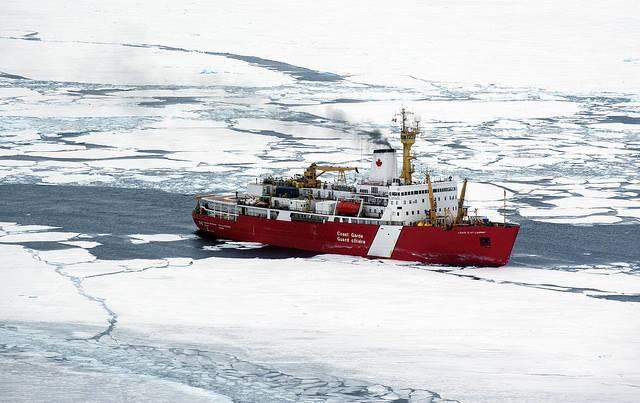
It was supposed to be a landmark study that would help narrow down the true effects of climate change on the Arctic and northern communities. But this week scientists aboard the Canadian Coast Guard Service icebreaker Amundsen announced that the study was being cancelled because climate change was making the trip too perilous to undertake.
The $17 million, 4-year project was due to start the first leg of its study at the end of May, with a 133-day journey across Canada's Hudson Bay. The 40-member team comprising scientists from four Canadian universities were due to take ice samples and study the impacts of global warming on Arctic ecosystems and communities.
But the team quickly found its mission diverted when it started picking up distress calls from boats and passenger ferries stranded in Arctic ice floes. Because the CCGS Amundsen is equipped for heavy ice conditions, the vessel was rerouted to help rescue boats that were taking on water and unable to navigate through the ice, forcing the ship to delay its research.
"The requirements for search and rescue trumped the requirements for science," said David Barber, the lead scientist for the University of Manitoba research project, who admitted that "the search and rescue calls were coming in fast and furious."
Barber, said the severe ice conditions in the Atlantic and Hudson Bay meant the Amundsen wouldn't make its critical schedule this year despite having left Quebec City almost a week earlier than planned.
"Considering the severe ice conditions and the increasing demand for Search And Rescue operations (SAR) and ice escort, we decided to cancel the BaySys mission," Barber said.
Fishing vessels off the eastern coast of Canada have found themselves stranded unexpectedly in ice floes that scientists thought were the result of thinning icebergs that the Coast Guard sees each year. But samples of the drifting ice that the scientists were able to take in a strait off the coast of Labrador suggest something different: The ice is actually from much farther up in the Arctic, from areas not usually seen in drifting ice floes.
""This is the first time we've actually seen ice from the High Arctic," Barber said, who said that the condition was "very much a climate change phenomena."
The team pointed out that not everything was lost with having to cancel the first leg of the trip: By the time the ship had concluded its search and rescue missions the scientists had amassed an entirely new dataset on the migrating ice and environmental conditions in which they were found. The information will help scientists decide how best to help coastal communities prepare for worsening climate change.
Barber said the scientists hope to resume the research with the second leg of the BaySys project in early July.
Flickr Images: Office of Naval Research; NOAA Photo Library
Jan Lee is a former news editor and award-winning editorial writer whose non-fiction and fiction have been published in the U.S., Canada, Mexico, the U.K. and Australia. Her articles and posts can be found on TriplePundit, JustMeans, and her blog, The Multicultural Jew, as well as other publications. She currently splits her residence between the city of Vancouver, British Columbia and the rural farmlands of Idaho.














